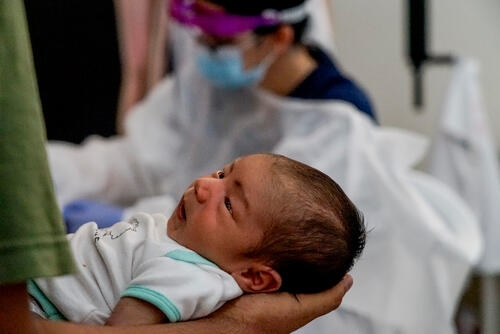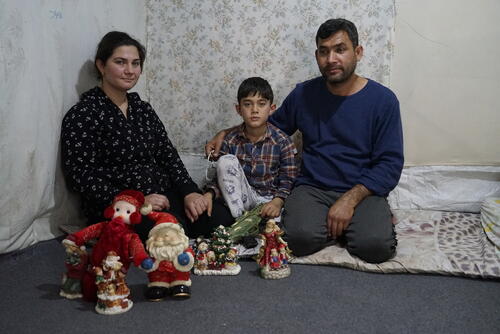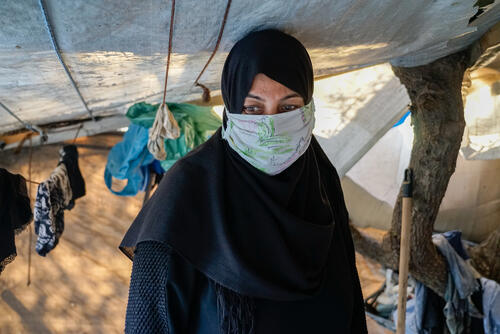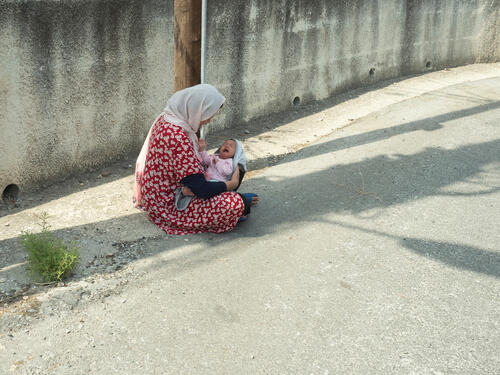Médecins Sans Frontières (MSF) is calling on the Greek and the EU authorities to stop their efforts to rebuild a new system of containment for refugees and asylum seekers on the island of Lesbos, Greece, and to break once and for all the cycle of suffering for people trapped on the Greek islands. European states should take the fire in Moria refugee camp on 8 September as an opportunity for real change in European migration policies and start by evacuating all people on Lesbos and the other Greek islands.
After fires which mostly destroyed Moria refugee camp on 8 and 10 September, thousands of people have been forced to sleep in the streets with almost no assistance, no hygiene measures and no sanitation facilities. The Greek and EU authorities are responding by trying to enforce the containment of people on Lesbos, and a new camp is currently under construction.
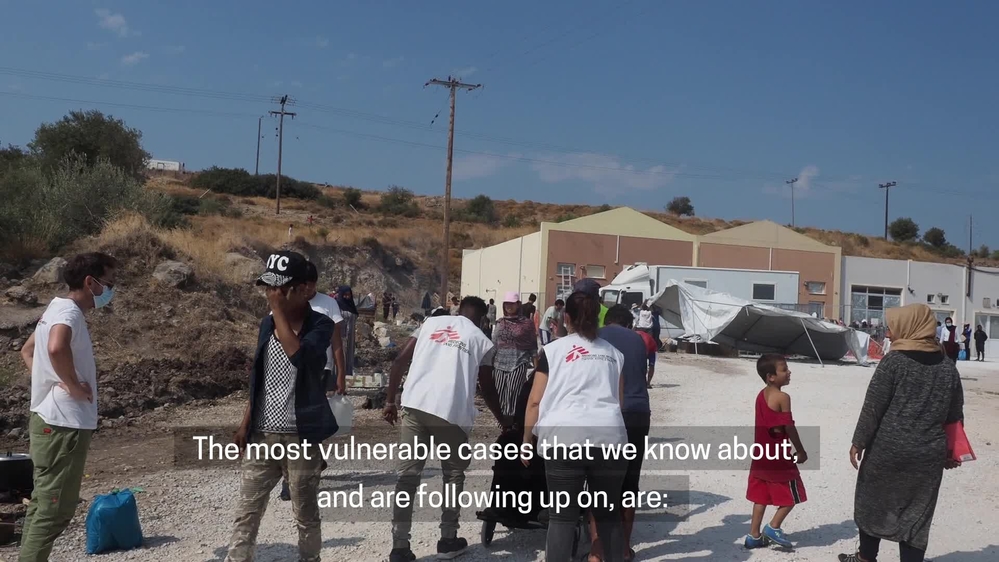
Providing care on the streets of Moria
European States are increasingly sending aid and support, but except from a few unaccompanied minors, they have shown no intention to relocate other people on Lesbos and to review their approach of containment.
“The stubbornness of the Greek and EU authorities to keep asylum seekers on the islands at any cost is irresponsible and has dire consequences,” says Stephan Oberreit, MSF head of mission in Greece. “The migratory pressure on the Greek islands should be perfectly manageable at European level and the transfer of a few hundred of unaccompanied minors to a limited number of European countries is just not enough.”
There are five years of cumulated and publicly-available evidence proving that the inhumane reception conditions, the unfair asylum procedures only lead to cyclical disaster and unmeasurable suffering.Stephan Oberreit, MSF head of mission in Greece.
For the last five years, MSF teams on the Greek islands have treated the consequences of European migration policies that pushed thousands of men, women and children in search of safety beyond their limits and to the deterioration of their physical and mental health. Among them are thousands of children and hundreds of victims of torture and violence, that have been retraumatized in Moria to a point which our doctors have repeatedly described as a mental health emergency.
“There are five years of cumulated and publicly-available evidence proving that the inhumane reception conditions, the unfair asylum procedures only lead to cyclical disaster and unmeasurable suffering,” says Oberreit. “Year after year, we read statements and declarations that the situation will improve, means will be deployed.”
“On the ground, MSF teams only see more misery, more human suffering, a routine of humiliation, xenophobia and violence,” Oberreit continues. “Continuing with this model means persevering in a deliberate mechanism of intentional violence, with full knowledge of its humane cost.”
Despite the policy-orchestrated nature of this crisis, the root causes of this disaster have never been questioned by European authorities, and nothing has been done to completely review a system that was rotten to the core.
Enough is enough. Decent solutions are possible... The time has come for EU countries to recognise the failure of deterrence policies.Stephan Oberreit, MSF head of mission in Greece.
European leaders must now respond by providing efficient and regular relocation mechanisms to ensure safe and dignified accommodation of people on the Greek mainland and in other European countries. Any new camps established must be only for transit or pre-relocation purposes.
“The argument of some European leaders that if people will be moved from the islands, the flows of 2015 will be repeated, is dangerous and completely misleading,” says Oberreit. “The current situation is not comparable to 2015; arrivals in Greece have never been so limited. There is literally no evidence that the arrival of a few thousand people, mainly families, would constitute a ‘pull-factor’ for more people to follow.”
MSF will continue to demand the creation of safe and legal pathways for those who seek a safe place to live and a better future for themselves and their families. Deterrence policies will not stop people; there is no refugee or immigration crisis today. There has always been a European reception crisis and an overall inadequate asylum system.
“Enough is enough. Decent solutions are possible,” says Oberreit. “Many countries and communities in Europe have expressed their willingness to host people in search of safety. The time has come for EU countries to recognise the failure of deterrence policies and stop using immigration as a means of short-term political calculations.”



